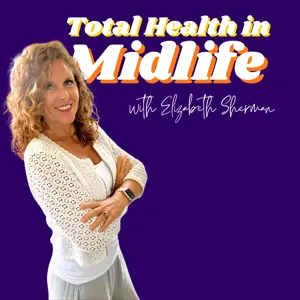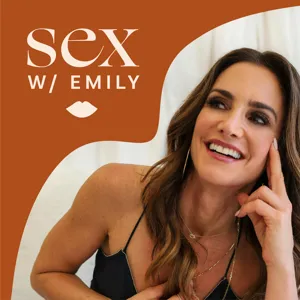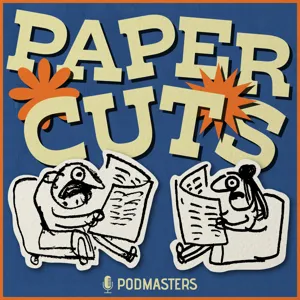Podcast Summary
Individual actions and systemic policies are both crucial for addressing climate change: Making sustainable choices and advocating for systemic changes are essential to effectively address the climate crisis
Both individual actions and systemic policies are important in addressing the climate crisis. While it's true that individual actions alone won't solve the problem, they can still make a difference. For example, making sustainable consumer choices can reduce your carbon footprint and put pressure on companies to adopt more eco-friendly practices. However, systemic changes, such as government policies and industrial shifts, are also necessary to make a significant impact on climate change. As the hosts of the "How to Save a Planet" podcast, Ayanna Elizabeth Johnson and Alex Bloomberg, emphasize, it's essential to focus on both individual actions and systemic solutions to effectively address the climate crisis. So, keep making sustainable choices in your daily life, but also advocate for and support systemic changes that prioritize renewable energy, limit greenhouse gas emissions, and promote sustainable agriculture.
Individual actions only account for half of global greenhouse gas emissions: Individuals can reduce their carbon footprint, but systemic changes are needed to address the root causes of climate change from electricity production, food, agriculture, and industries.
Individual actions matter in the fight against climate change, but they represent only a portion of the solution. According to Dr. Katherine Wilkinson, about half of global greenhouse gas emissions come from two sources: electricity production and food, agriculture, and land use. These are areas where individuals have less control, as they are largely driven by systemic and industrial processes. The other half comes from industries like manufacturing and producing goods. While individual actions can make a difference, particularly in reducing personal carbon footprint, systemic changes are necessary to address the root causes of climate change. So, while cutting out cheese or using reusable bags are important steps, they are just part of the solution. Focusing on larger-scale changes, such as advocating for renewable energy and supporting policies that reduce emissions from industries, is also crucial.
Individual actions seem insignificant compared to large contributors of greenhouse gases: While individual actions may seem insignificant, they can collectively make a significant impact on reducing greenhouse gas emissions through choices like using public transportation, carpooling, eating plant-based, and using energy-efficient appliances.
Individual actions may seem insignificant when considering the global sources of greenhouse gas emissions. The largest contributors include agriculture and land use (25%), electricity (25%), industry (20%), transportation (15%), and buildings (5%), accounting for approximately 90% of total emissions. These systems often involve fossil fuels and are outside of individual control. For instance, an average American's carbon footprint is about 16 tons per year, which is relatively large compared to other nations. This perspective argues that individual actions may not matter much in the grand scheme of things. However, it's essential to remember that even small changes can collectively make a significant impact. While we may not be able to control large industrial processes or the electricity grid, we can still make choices that reduce our carbon footprint, such as using public transportation, carpooling, eating a plant-based diet, or using energy-efficient appliances. These actions, though seemingly small, can add up and contribute to a larger, more sustainable future.
Individual actions have limited impact on global carbon emissions: Individual actions, such as reducing children, driving less, flying less, energy efficiency, and plant-based diet, can reduce carbon footprint but have negligible impact on global emissions. Focus on systemic changes like renewable energy, public transportation, and sustainable food production.
Individual actions, such as having fewer children, driving less, flying less, becoming more energy efficient, and switching to a plant-based diet, can significantly reduce one's carbon footprint. However, even if every individual takes these actions perfectly, their impact on the overall global problem is negligible, making up only a tiny fraction of the total emissions. Therefore, it's essential to focus on changing systems and policies to reduce carbon emissions at a larger scale. This means advocating for renewable energy sources, public transportation, and sustainable food production, among other things. While individual actions are important, they are not enough to solve the climate crisis on their own.
Individual actions may seem small, but they matter: Individual choices align actions with values, contribute to cultural shift, and can lead to larger changes
While individual actions may seem insignificant when compared to the vast amounts of carbon in the atmosphere, they are still important. Catherine Wilkinson, an expert in the field, acknowledged that her own personal choices, such as being vegetarian or composting, make only tiny contributions to reducing carbon emissions. However, these actions serve a greater purpose. They help individuals reflect on their values and connection to the planet, and align their actions with their beliefs. This focus can lead to larger changes, such as advocating for systemic solutions or influencing others. So, while it's crucial to acknowledge the scale of the climate crisis and the need for collective action, individual choices should not be dismissed entirely. They play a role in shaping our personal impact and contributing to a cultural shift towards more sustainable practices.
Effective carbon footprint reduction starts with communication: Talking about individual climate actions amplifies their impact and encourages wider change
Individual actions to reduce carbon footprint are most effective when seen as a form of communication and invitation for others to join. This was emphasized by various experts in the discussion. The example given was the trend of people in Europe flying less for the climate, which led to a ripple effect of more people changing their attitudes and behaviors. Research suggests that this communication and social norm shift can influence policy changes, such as the proposal for a frequent flyer tax in the UK. The key message is that talking about individual actions is just as important as taking them, as it amplifies their impact and encourages wider change. According to Dr. Anthony Leiserowitz, only around 10% of Americans deny climate science, so it's crucial to counteract the loud voices of deniers with open conversations about climate action.
Creating a welcoming environment for climate change discussions: Effective communication and inclusivity are vital for addressing climate change. Preventing conversations due to fear of judgment or shame can hinder progress. Focus on individual actions, skills, and joy to contribute meaningfully.
Effective communication and inclusivity are crucial in addressing important issues like climate change. The "spiral of silence" can prevent conversations from happening when individuals assume others don't share their views, leading to a lack of dialogue and action. It's essential to create a welcoming environment where people can engage in discussions without fear of judgment or shame. Individual actions can make a significant impact, and it's essential to consider one's skills, the work that needs doing, and what brings joy when determining how to contribute. By focusing on these areas, we can work together to create meaningful change.
Find joy and passion in work for greater impact: Focus on parts of work that bring joy and align with skills to be more effective, motivated, and make a meaningful contribution
Finding joy and passion in the work we do is essential for attracting others and making a meaningful contribution. This doesn't mean we have to love every aspect of what we're doing, but rather focus on the parts that bring us joy and align with our unique skills. By doing so, we'll be more effective and motivated, and our impact will be greater. This approach is not about following a cookie-cutter list, but rather tailoring our actions to our personal strengths and interests. By combining what we love, what we're good at, and the climate solutions we care about, we can make a significant difference in a way that feels authentic and fulfilling to us. This exercise can be simple and quick, and the answer will vary for each person. Let's encourage the environmental movement to recognize and harness the unique talents of individuals, rather than asking everyone to do the same thing.
Think beyond individual actions to create systemic change: Expanding our circles of influence can lead to significant impacts in reducing carbon emissions by creating larger ripples in our companies, communities, and industries
While individual actions matter in addressing climate change, they are most impactful when used as a tool to influence larger systems. Catherine Wilkinson, the debate coach in this episode, emphasizes the importance of thinking beyond our own actions and considering how we can use our skills and influence to bring about change within our companies, communities, and industries. This approach can lead to significant impacts, from implementing composting programs in schools or workplaces to advocating for renewable energy in our communities. By expanding our circles of influence, we can create larger ripples that ultimately make a greater difference in reducing carbon emissions. So, while it's important to consider our individual carbon footprint, it's equally important to think about how we can use our actions to create systemic change.
Create a Venn diagram of skills, interests, and climate solutions: Insulate your attic, share ideas in a Venn diagram, and join the conversation on climate solutions. Every action counts.
Each of us has a role to play in addressing climate change, and it starts with being considerate and open-minded towards others' ideas and contributions. Don't be a jerk. Instead, create a Venn diagram of your skills, interests, and desired climate solutions. Share it with others to start conversations and inspire action. Another tangible action item is insulating your attic, which is one of the most effective ways to reduce your carbon footprint. For a more comprehensive understanding of the issue, check out Project Drawdown, which provides a clear picture of the sources and solutions of greenhouse gases. Remember, every little action counts. So, insulate your attic, create a Venn diagram, and join the conversation on how we can all show up to save the planet. For more information and resources, visit howtosaveaplanet.com and sign up for our newsletter.
The Importance of Self-Care in Unexpected Places: Finding small moments of relaxation and self-care, even in unexpected places, can significantly improve well-being. A personal story about lighting a scented candle during a business trip highlights the impact of self-care.
Learning from this week's episode of How to Save a Planet is the importance of finding small moments of relaxation and self-care, even in unexpected places. Host Ayanna Elizabeth Johnson shared a personal story about feeling stressed during a business trip and the simple pleasure she found in lighting a scented candle. However, she was unable to find a lighter or matches in her hotel and had to enlist the help of two strangers to light it for her. Despite the initial embarrassment, she was able to enjoy the aromatherapy and the calming effect it had on her. This experience serves as a reminder that taking care of ourselves, even in small ways, can have a significant impact on our well-being. Additionally, the podcast covered various topics such as oceanology, the Drawdown Design Project, and the importance of fact-checking. The team behind the podcast includes hosts Ayanna Elizabeth Johnson and Alex Blumberg, producers Kendra PR Lewis, Rachel Walholz, Anna Ladd, Felix Poon, and intern IO OT. The senior producer is Lauren Silverman, editor is Caitlin Kenny, sound design and mixing by Peter Leonard, original music by Peter Leonard, Katherine Anderson, and Emma Munger, and fact-checker Claudia Geib. The podcast is a Spotify original and a Gimlet production, and new episodes can be found on the show's website or through your favorite podcast platform. Stay tuned for upcoming episodes and bonus conversations.





![Tish and Brandi Cyrus: Disney, Daughters & Divorce [VIDEO]](https://www.podcastworld.io/podcast-images/call-her-daddy-ipzbwrwz.webp)
